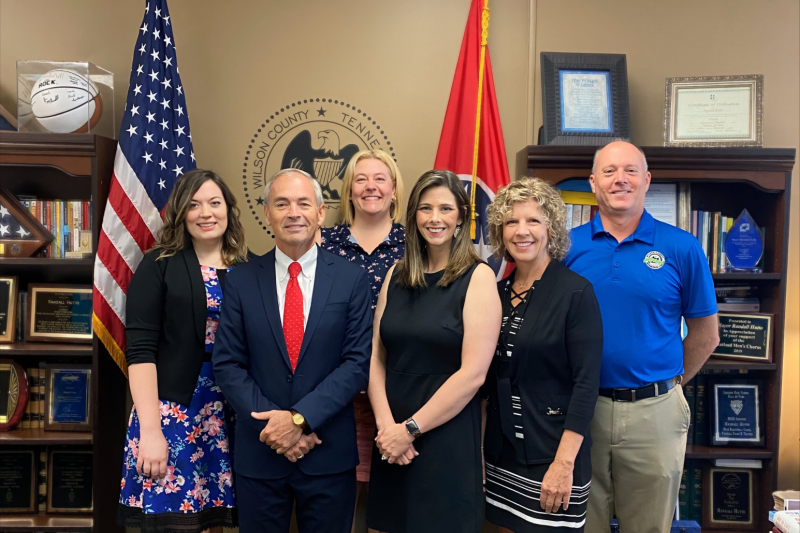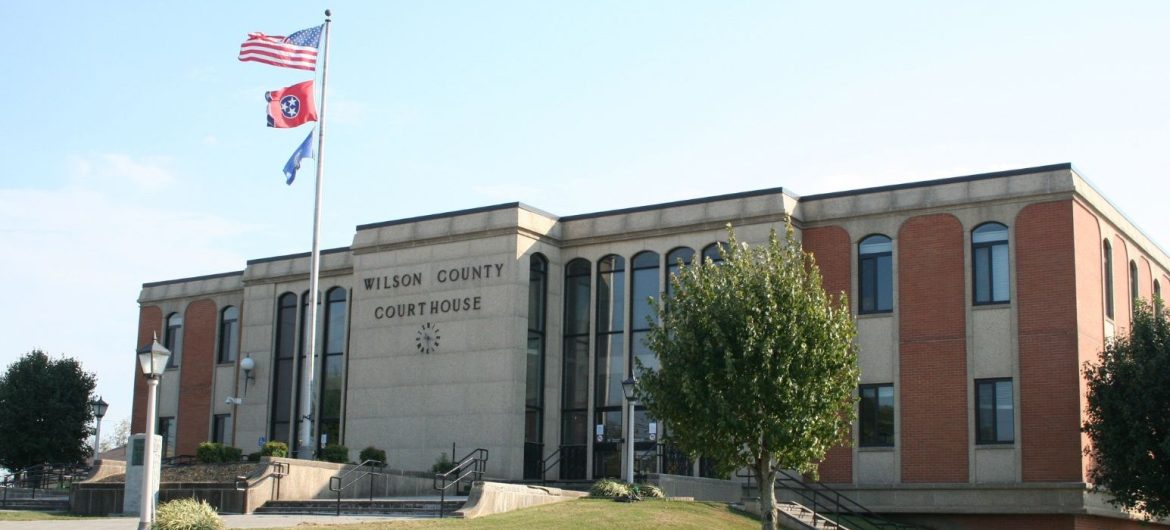Preparing a Pathway to Prosperity
Preserving southern heritage while embracing modern development in Wilson County
Facing the demands of a rapidly evolving future, Wilson County, Tennessee, stands at the crossroads of growth.
The county is prioritizing the principle of balance in its strategic planning, as its leaders recognize the need to harmonize quality of life with population growth.
Because of this, long-term infrastructure investments have been essential. Enhancing transportation networks while also expanding public utilities has allowed Wilson County to accommodate its increasing population while maintaining its charm and quality of life.
Fortunately for residents, this balance can be observed in both the highest and the most foundational aspects that sustain Wilson County’s residents and businesses.
Economic development is focused strongly on attracting diverse industries and supporting local businesses, making particularly good use of residential feedback as a strategy.
The county’s leaders also make sure to foster strong public-private partnerships to ensure that growth remains intentional and beneficial to the entire community.
One thing that Wilson County is widely known for is its continued investments in its education system, workforce development, and public services.
Schools are well-equipped resources to prepare students for the future, offering them several CTE and vocational training programs that align with current industry demands to keep the local workforce competitive.
Additionally, thanks to its great public safety enhancements and healthcare accessibility, the communities of Wilson County experience an engaged, eventful, high-quality lifestyle.
When combined, these traits come together to define Wilson County as a flourishing community where economic prosperity meets a strong sense of belonging.
It is a place where businesses thrive, and families feel supported, and it retains its welcoming, small-town character while embracing the challenges and changes of tomorrow.
A Community on the Rise
Wilson County, Tennessee, has positioned itself as a premier destination for businesses and residents alike, leveraging its strategic location, diversified economic pillars, safety, and focus on education.

Approximately 583 square miles, Wilson is the 19th largest county in the state and the 4th fastest-growing. The county is made up of three towns: Lebanon, Mount Juliet, and Watertown.
The county takes pride in the fact that 74% of the land is open space. In fact, Wilson County holds the largest population of century farms in the state of Tennessee. Despite being a perk, the county’s rustic aesthetic is not the main reason residents choose to live there.
“Education is the number one reason people move to Wilson County. Public safety is another contributing factor, and lastly, we’re close enough to Nashville that people can go in and have fun, yet not have the hustle and bustle of that large city atmosphere to live in,” says Mayor Randall Hutto.
So, there is a very good balance between rural and suburban life, with easy access to urban amenities.
Wilson County’s economic strategy revolves around maintaining a diverse business ecosystem. While distribution remains a major sector, light manufacturing has also taken root, evolving into a high-tech industry that requires a skilled workforce.
Healthcare is another pillar of growth, with a focus on attracting businesses involved in research and development and supply chain logistics.
Fortunately for residents, the county’s leaders have been working to improve its business ecosystem via key investments in infrastructure. “We added a bypass called Golden Bear gateway, and a lot of businesses and development have come along to that area,” Mayor Hutto remarks.
One of Amazon’s largest facilities, a five-story main distribution center, is just one of many large developments that have settled down in the area.
This diversification ensures that the local economy remains resilient and adaptable and has helped to invigorate economically smaller areas like Mount Juliet. The bypass comes in addition to several other advantageously located highway corridors that provide incredible accessibility in terms of commercial activity.
“We’re located close to four major interstates: I-840, I-65, I-24, as well as 109. Those make access really easy for companies to relocate here or expand because we’re within 650 miles of 75% of the entire US market,” Mayor Hutto explains.
Simply put, because Wilson County is in a center region, you can access 75% of the market within about a day’s drive!
The Socio-Economic Benefits of Living in Wilson County
Despite its commercial accessibility, one of the challenges Wilson County faces is the daily migration of approximately 40,000 residents who commute to other counties for work.
To counter this, economic leaders are focused on attracting employers that offer high-paying jobs within Wilson County.
The costs of living have risen in the region, so wages must keep up for residents to live comfortably. The county has deployed a power initiative to ensure that happens.
“We have a pilot program in place here through the Joint Economic Development Office that allows up to seven years of tax abatement for companies that qualify,” Mayor Hutto explains.
The idea is that financial incentives like this, combined with Wilson County’s infrastructural accessibility, should be enticing enough to draw companies that can provide higher-paying, white-collar jobs to the area.
This not only reduces traffic congestion but also enhances work-life balance, allowing residents to spend more time with their families. This connectivity has made Wilson County particularly well-suited for logistics companies, but leaders are keen on ensuring a balance between high-paying jobs and industry diversification.
Regarding work-life balance, amenities also play a crucial role in the quality of life in Wilson County. The Farm Bureau Expo Center, built in recent years, provides a venue for local events, eliminating the need for residents to travel out of the county for entertainment.
Tourism has also emerged as a vital contributor to Wilson County’s economic growth. The county has made significant investments in tourism infrastructure, including the James E. Ward Ag Center, a 250-acre facility that hosts trade shows, livestock exhibitions, and festivals.
Additionally, one of the most notable events is the Tennessee State Fair, which has now made its home in Wilson County.
Approximately 30% of the county’s sales tax revenue comes from visitors, which plays a crucial role in funding public services, particularly education. “Half of all sales tax funds education, as it’s our biggest expense,” Mayor Hutto says, explaining that tourism promotion remains a key priority, as it not only supports local businesses but also strengthens the county’s residential well-being.
The Wilson County Education system serves over 20,000 students, so these funds ensure that the county’s youth are well taken care of.
“We have three K–8 schools in our rural areas, and then we have two adult education centers. We also have a true adult education program where you can come in and get a regular diploma,” explains Director of Schools Jeff Lutrell, noting the similarities between the county’s adult education program and a GED.
The county is also in the middle of expanding its already robust Career and Technical Education (CTE) programs for its high school students.
Currently, aviation is one of the areas of expansion, but other than that, “we have pathways in nursing, culinary arts programs… we offer welding, and we also partner with Cumberland University to offer some higher education opportunities,” Luttrell says.
The county also has fantastic opportunities in technology where students can become Dell-certified as technicians, typically granting them access to strong job offers right out of high school.
Thanks to a well-developed Pre-K through Adult educational pipeline, Wilson County residents have more than enough support in finding viable careers, no matter their stage of life.
Balancing County Supply with Residential Demand for Future Growth
As one of the fastest-growing areas in Tennessee, Wilson County is facing the challenges of rapid residential expansion.
Lebanon, the county seat, is now the 12th fastest-growing city in the state. However, this growth has led to increased housing demand, driving up prices and creating affordability concerns.
The county is seeing a shift in housing preferences, with more people opting for apartments due to affordability and flexibility. However, there remains a stigma around apartments as lower-income housing despite rental costs often rivaling mortgage payments.
Leaders are working to strike a balance between maintaining green spaces, managing traffic, and ensuring adequate housing supply to meet the needs of the growing population.
Looking ahead, Wilson County officials are focused on several key initiatives.
Over the next 18 months, the county will open two new elementary schools, which will help alleviate overcrowding and accommodate population growth.
From an economic perspective, officials continue to prioritize attracting a mix of businesses that provide high-paying jobs.

This includes expanding the healthcare sector, investing in technological advancements in manufacturing, and tapping into the growing field of sports tourism.
While tourism is already a strong economic driver, there is room for growth, particularly in youth sports and outdoor recreation.
Philosophically, Wilson County’s leadership embraces a servant-leadership approach. Mayor Randall Hutto emphasizes humility and service as key principles in governance.
“My role as the County Mayor is simply to lay out as many facts as possible for the County Commission to make good decisions for the people who live here,” Mayor Hutto affirms.
By fostering an environment where facts drive decision-making, and leaders remain accountable to residents, the county ensures that growth is managed in a way that benefits all stakeholders.
Wilson County’s position in the region is clear: a thriving community that balances economic development with quality of life.
With strategic planning, investment in education, and a devotion to resident well-being, the county is well-positioned for sustainable growth both in the short and long term.
AT A GLANCE
Who: Wilson County, Tennessee
What: A rapidly growing community balancing economic expansion with a high quality of life.
Where: Located in Middle Tennessee, Wilson County spans 583 square miles and includes the towns of Lebanon, Mount Juliet, and Watertown.
Website: www.wilsoncountytn.gov
PREFERRED VENDORS/PARTNERS

First Freedom Bank is an independent, community-focused, full-service bank. We have offices in Lebanon, Mt. Juliet, Cookeville, Algood, and Gainesboro, Tennessee. Our legacy is built on relationships, trust, and a commitment to our customers. Choose us as your bank and experience the difference. Member FDIC and Equal Housing Lender.
First Freedom Bank: www.firstfreedombank.com
Founded in 1936, MTE is the largest electric cooperative in the Tennessee Valley Authority (TVA) region and the second largest in the United States. It serves over 750,000 Tennesseans in Rutherford, Cannon, Williamson, and Wilson counties. MTE’s broadband subsidiary, United Communications, provides high-speed internet and phone services to portions of Wilson County.
Middle Tennessee Electric: www.mte.com


